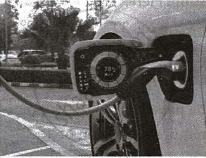Advertisements
Advertisements
प्रश्न
Every invertible function is
विकल्प
monotonic function
constant function
identity function
not necessarily monotonic function
उत्तर
monotonic function
We know that "every invertible function is a monotonic function".
APPEARS IN
संबंधित प्रश्न
Show that the function `f(x) = x^3 - 3x^2 + 6x - 100` is increasing on R
Find the intervals in which the following functions are strictly increasing or decreasing:
x2 + 2x − 5
Find the intervals in which the following functions are strictly increasing or decreasing:
−2x3 − 9x2 − 12x + 1
Show that y = `log(1+x) - (2x)/(2+x), x> - 1`, is an increasing function of x throughout its domain.
Prove that the logarithmic function is strictly increasing on (0, ∞).
Which of the following functions are strictly decreasing on `(0, pi/2)`?
- cos x
- cos 2x
- cos 3x
- tan x
Let I be any interval disjoint from (−1, 1). Prove that the function f given by `f(x) = x + 1/x` is strictly increasing on I.
Prove that the function f given by f(x) = log cos x is strictly decreasing on `(0, pi/2)` and strictly increasing on `((3pi)/2, 2pi).`
Prove that the function given by f (x) = x3 – 3x2 + 3x – 100 is increasing in R.
Water is dripping out from a conical funnel of semi-verticle angle `pi/4` at the uniform rate of `2 cm^2/sec`in the surface, through a tiny hole at the vertex of the bottom. When the slant height of the water level is 4 cm, find the rate of decrease of the slant height of the water.
Prove that f(x) = ax + b, where a, b are constants and a > 0 is an increasing function on R ?
Find the interval in which the following function are increasing or decreasing f(x) = 5x3 − 15x2 − 120x + 3 ?
Show that f(x) = sin x is increasing on (0, π/2) and decreasing on (π/2, π) and neither increasing nor decreasing in (0, π) ?
Show that f(x) = x − sin x is increasing for all x ∈ R ?
Show that f(x) = sin x is an increasing function on (−π/2, π/2) ?
Show that f(x) = x9 + 4x7 + 11 is an increasing function for all x ∈ R ?
Show that f(x) = tan−1 x − x is a decreasing function on R ?
Show that f(x) = x2 − x sin x is an increasing function on (0, π/2) ?
Find the interval in which f(x) is increasing or decreasing f(x) = sinx(1 + cosx), 0 < x < \[\frac{\pi}{2}\] ?
Write the set of values of k for which f(x) = kx − sin x is increasing on R ?
The function f(x) = −x/2 + sin x defined on [−π/3, π/3] is
Prove that the function `f(x) = x^3- 6x^2 + 12x+5` is increasing on R.
Find the values of x for which the following functions are strictly increasing:
f(x) = 3 + 3x – 3x2 + x3
Find the values of x for which f(x) = `x/(x^2 + 1)` is (a) strictly increasing (b) decreasing.
Find the values of x for which f(x) = 2x3 – 15x2 – 144x – 7 is
(a) Strictly increasing
(b) strictly decreasing
The function f(x) = `x - 1/x`, x ∈ R, x ≠ 0 is increasing
The function f(x) = 9 - x5 - x7 is decreasing for
The function f(x) = `(2x^2 - 1)/x^4`, x > 0, decreases in the interval ______.
Let f (x) = tan x – 4x, then in the interval `[- pi/3, pi/3], "f"("x")` is ____________.
The function f(x) = tan-1 (sin x + cos x) is an increasing function in:
Let x0 be a point in the domain of definition of a real valued function `f` and there exists an open interval I = (x0 – h, ro + h) containing x0. Then which of the following statement is/ are true for the above statement.
The function f(x) = `(4x^3 - 3x^2)/6 - 2sinx + (2x - 1)cosx` ______.
If f(x) = x3 + 4x2 + λx + 1(λ ∈ R) is a monotonically decreasing function of x in the largest possible interval `(–2, (–2)/3)` then ______.
The function f(x) = `|x - 1|/x^2` is monotonically decreasing on ______.
Read the following passage:
|
The use of electric vehicles will curb air pollution in the long run. V(t) = `1/5 t^3 - 5/2 t^2 + 25t - 2` where t represents the time and t = 1, 2, 3, ...... corresponds to years 2001, 2002, 2003, ...... respectively. |
Based on the above information, answer the following questions:
- Can the above function be used to estimate number of vehicles in the year 2000? Justify. (2)
- Prove that the function V(t) is an increasing function. (2)
Find the interval/s in which the function f : R `rightarrow` R defined by f(x) = xex, is increasing.
Let f(x) = x3 – 6x2 + 9x + 18, then f(x) is strictly increasing in ______.
In which one of the following intervals is the function f(x) = x3 – 12x increasing?
Find the interval in which the function f(x) = x2e–x is strictly increasing or decreasing.

